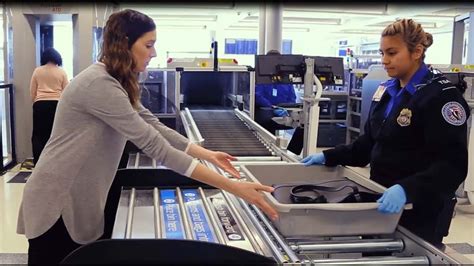
Nightclub bouncers often witness the raw underbelly of social dynamics, but one former bouncer shares a surprisingly simple observation: most people who frequent nightclubs primarily seek validation and visibility. After working at a rowdy nightclub, the bouncer learned a crucial lesson about human nature: the desire to be seen and acknowledged is a fundamental driver of behavior in such environments.
The Nightclub as a Stage: One Bouncer’s Revelations
For years, a former nightclub bouncer stood sentinel at the doorway of a chaotic world, observing the ebb and flow of revelers seeking an escape from the mundane. While many might assume nightclubs are solely about drinking, dancing, or hooking up, this bouncer realized something deeper was at play: the overwhelming desire to be seen. He claims this realization is “one important thing about people” he learned while working in the nightclub.
“People just want to be seen,” the bouncer explained. “They want to be recognized, acknowledged, and validated. The nightclub is a stage where they can perform and hopefully garner the attention they crave.” This observation sheds light on the motivations driving the crowds that flock to these establishments, offering a unique perspective on the human need for social recognition.
The bouncer’s experience isn’t just anecdotal; it touches on fundamental aspects of human psychology. The need for recognition and belonging is deeply ingrained in our nature. Nightclubs, with their flashing lights, loud music, and social atmosphere, provide a readily available platform for individuals to fulfill these needs, albeit often superficially.
The Psychology of Visibility
To understand the bouncer’s insight, one must delve into the psychological drivers behind the desire to be seen. Social psychologists have long recognized the importance of social recognition in shaping human behavior and self-esteem.
- Social Comparison Theory: Leon Festinger’s social comparison theory posits that individuals evaluate their own opinions and abilities by comparing themselves to others. Nightclubs offer a fertile ground for social comparison, where individuals constantly assess their appearance, social status, and popularity relative to those around them. The act of being seen and acknowledged by others reinforces a person’s sense of self-worth and belonging.
- Symbolic Interactionism: This sociological perspective emphasizes the role of symbols and meanings in shaping social interactions. In a nightclub setting, clothing, accessories, and even dance moves can serve as symbols of status and identity. Individuals use these symbols to communicate who they are to others and to elicit desired responses. Being seen wearing the right clothes or associating with the right people can enhance a person’s social standing and visibility.
- Self-Esteem and Validation: The desire to be seen is closely linked to self-esteem. People with low self-esteem may seek validation from others to compensate for their own feelings of inadequacy. Nightclubs can provide a temporary boost to self-esteem through compliments, attention, and social acceptance. However, this validation is often fleeting and dependent on external factors, leading to a cycle of seeking more attention.
- Belongingness Hypothesis: Roy Baumeister and Mark Leary proposed the belongingness hypothesis, which states that humans have a fundamental need to belong and form strong, stable interpersonal relationships. Nightclubs can offer a sense of belonging, particularly for individuals who struggle to find social connections elsewhere. The act of being seen and accepted by a group can fulfill this need, even if the relationships are superficial.
The bouncer’s observations underscore how these psychological forces manifest in the specific context of a nightclub. Individuals aren’t simply there to drink and dance; they’re actively seeking to enhance their social visibility and validate their sense of self.
The Nightclub as a Microcosm of Society
The nightclub environment, with its amplified social dynamics, can be seen as a microcosm of broader societal trends. In an increasingly interconnected and image-conscious world, the desire to be seen and recognized is becoming more prevalent than ever. Social media platforms, in particular, have intensified this phenomenon, providing individuals with unprecedented opportunities to curate their online personas and seek validation from a vast audience.
- Social Media Influence: Platforms like Instagram, TikTok, and Facebook have transformed the way people interact and present themselves. Individuals meticulously craft their online profiles, posting carefully curated photos and updates designed to elicit likes, comments, and followers. This constant pursuit of online validation mirrors the desire to be seen in a nightclub, albeit on a much larger scale.
- The Attention Economy: The rise of the internet has created an “attention economy,” where attention is a scarce and valuable commodity. Individuals and businesses compete fiercely for attention, using various strategies to stand out from the crowd. In this environment, the desire to be seen is not just a personal aspiration but also a crucial factor for success.
- Celebrity Culture: The pervasive influence of celebrity culture further fuels the desire to be seen. Celebrities are constantly in the public eye, and their lives are meticulously documented and scrutinized. This constant exposure creates a sense of aspiration and encourages individuals to emulate celebrity lifestyles in their own lives. Nightclubs, with their VIP areas and celebrity sightings, offer a glimpse into this world of fame and fortune.
The bouncer’s observations, therefore, extend beyond the confines of the nightclub and offer insights into the broader cultural landscape. The desire to be seen is a powerful force that shapes individual behavior and social dynamics in a variety of contexts.
The Dark Side of Visibility
While the desire to be seen is a natural human impulse, it can also have negative consequences. The relentless pursuit of attention can lead to insecurity, anxiety, and a distorted sense of self-worth.
- Inauthenticity: In the quest to be seen and admired, individuals may present a false or exaggerated version of themselves. This inauthenticity can erode genuine relationships and lead to feelings of emptiness and disconnection.
- Social Comparison Anxiety: Constantly comparing oneself to others can lead to anxiety and depression. The curated images and highlight reels that dominate social media can create unrealistic expectations and make people feel inadequate.
- Addiction to Validation: The temporary high that comes from receiving attention can be addictive. Individuals may become dependent on external validation and engage in increasingly risky or attention-seeking behaviors to maintain their social standing.
- Privacy Concerns: The desire to be seen can also lead to privacy violations. Individuals may share personal information or engage in activities that compromise their safety and security in order to gain attention.
The bouncer’s observations, while insightful, also serve as a cautionary tale. While it’s natural to want to be seen and recognized, it’s important to maintain a healthy perspective and avoid becoming overly reliant on external validation.
Implications and Applications
The bouncer’s insight has implications for a variety of fields, including marketing, advertising, and social psychology. Understanding the desire to be seen can help businesses create more effective marketing campaigns, design more engaging products, and build stronger relationships with their customers.
- Marketing and Advertising: Advertisers have long recognized the power of social influence and the desire to be seen. They use celebrity endorsements, social proof, and aspirational imagery to appeal to consumers’ desire for status and recognition.
- Product Design: Products are often designed with social visibility in mind. Fashion brands, for example, create products that are instantly recognizable and signal status. Similarly, technology companies design products that are aesthetically pleasing and socially desirable.
- Social Psychology: Researchers can use the bouncer’s observations to further explore the psychological drivers behind the desire to be seen and to develop interventions to promote healthy self-esteem and social connections.
- Personal Development: Individuals can use this insight to become more aware of their own motivations and to develop healthier relationships with themselves and others. By understanding the desire to be seen, people can make more conscious choices about how they present themselves and how they seek validation.
The bouncer’s simple observation about the desire to be seen in nightclubs offers a valuable lens through which to understand human behavior and social dynamics. It underscores the importance of social recognition and the potential pitfalls of seeking validation in an increasingly image-conscious world.
Conclusion
The former nightclub bouncer’s revelation that “people just want to be seen” is a profound observation that resonates far beyond the walls of a nightclub. It speaks to a fundamental human need for recognition, validation, and belonging. This desire, while natural, can be both a driving force for positive social interaction and a potential source of insecurity and anxiety. By understanding the psychology of visibility, individuals can develop healthier relationships with themselves and others, and businesses can create more meaningful connections with their customers. The nightclub, in this context, becomes a revealing stage upon which the drama of human social dynamics plays out, offering a unique and insightful perspective on the complexities of human nature. The lesson learned underscores the importance of understanding human motivations and the powerful influence of social dynamics on individual behavior, further highlighting how nightclubs act as social stages where the need for validation and belonging takes center stage. Ultimately, the bouncer’s experience provides a poignant commentary on the modern human condition, highlighting our constant pursuit of acknowledgement and the inherent desire to leave a mark, be it through fleeting moments of attention or more enduring connections.
Frequently Asked Questions (FAQ)
-
What was the main observation made by the former nightclub bouncer?
The main observation was that people who frequent nightclubs primarily want to be seen and acknowledged. The bouncer stated that “people just want to be seen,” emphasizing the importance of recognition and validation in such environments.
-
How does the desire to be seen relate to human psychology?
The desire to be seen is closely tied to several psychological concepts, including social comparison theory, symbolic interactionism, self-esteem, and the belongingness hypothesis. These theories suggest that individuals seek validation from others to reinforce their sense of self-worth and belonging.
-
How has social media influenced the desire to be seen?
Social media platforms have intensified the desire to be seen by providing individuals with unprecedented opportunities to curate their online personas and seek validation from a vast audience. Platforms like Instagram, TikTok, and Facebook have transformed the way people interact and present themselves.
-
What are some potential negative consequences of the relentless pursuit of visibility?
The relentless pursuit of visibility can lead to negative consequences such as inauthenticity, social comparison anxiety, addiction to validation, and privacy concerns. Individuals may present a false version of themselves or engage in risky behaviors to gain attention.
-
How can businesses and individuals apply the bouncer’s insight?
Businesses can use the insight to create more effective marketing campaigns and design products that appeal to consumers’ desire for status and recognition. Individuals can use it to become more aware of their own motivations and develop healthier relationships with themselves and others. By understanding the desire to be seen, people can make more conscious choices about how they present themselves and how they seek validation, fostering more authentic interactions.









